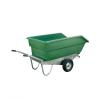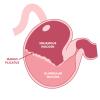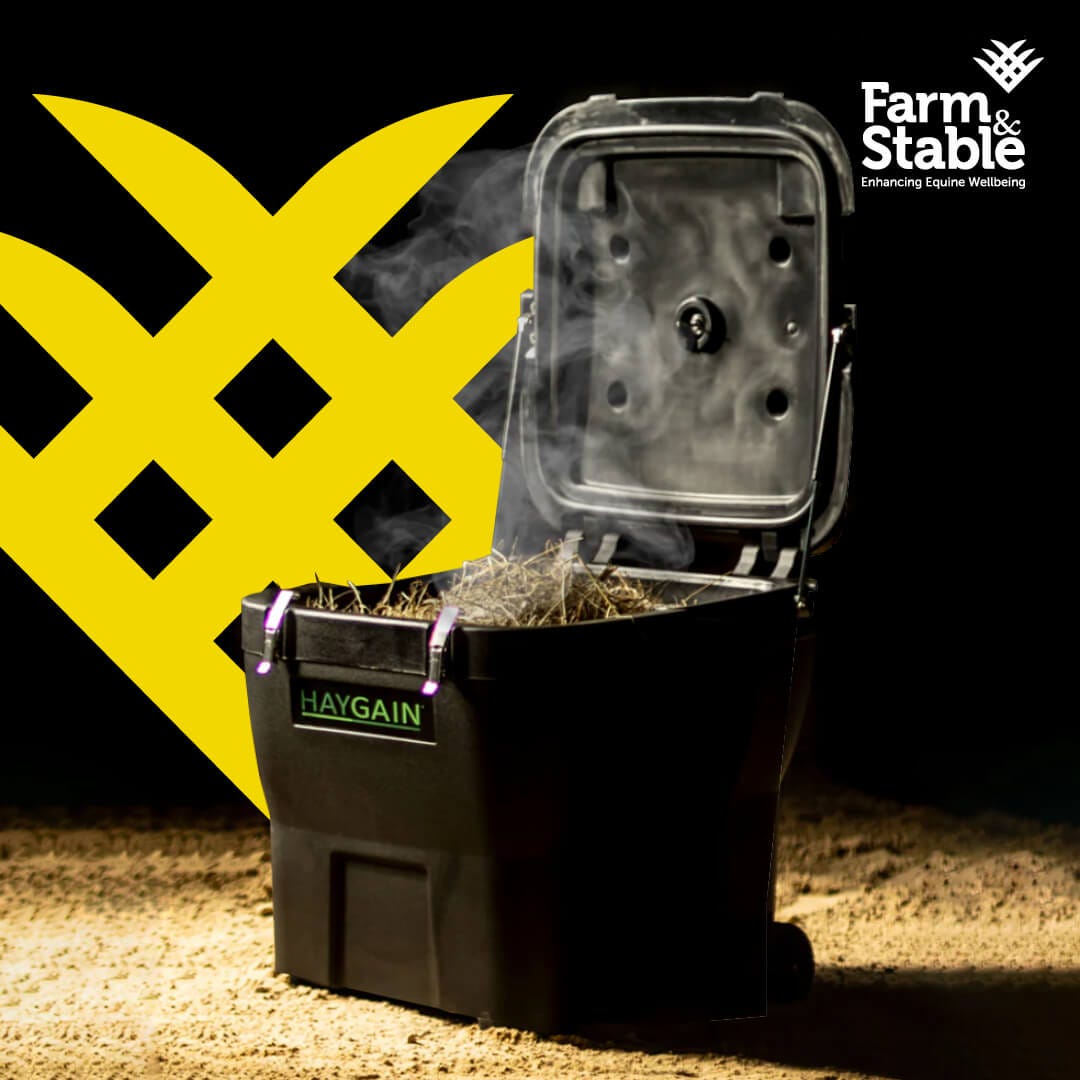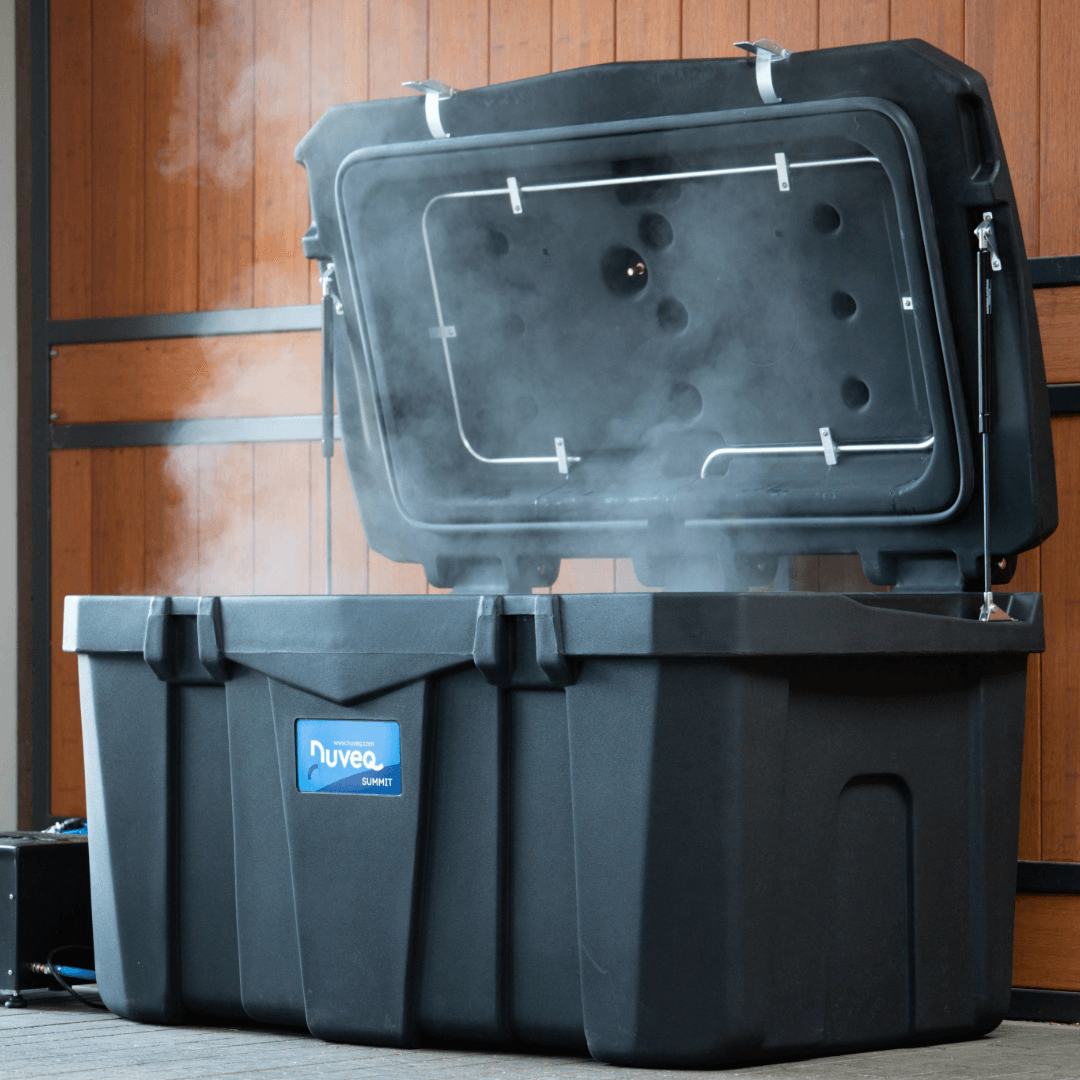
Summer is an exciting time for equestrians! Warmer days and shorter nights mean more time spent in the saddle, and it is also the busiest time of year for competitive equestrians that will be out attending shows and competitions.
While this season provides a welcome relief from some obvious challenges such as torrential rain, mud and sometimes snow, the summer that sees blistering temperatures and struggling pasture brings its own adversities.
Here is a guide to help you through some of the common struggles of summer.
- How to beat the flies
If not managed properly, flies can be pests that blight the summer months for your horse. Therefore, as well as a fly rug and mask, an effective fly repelling spray is an absolute summer essential.
At Farm & Stable, we recommend Bremsen Fly Spray as it is the strongest, most effective fly spray we have ever found.
The Bremsen Classic Long-Acting liquid is an extremely effective deterrent against undesirable, biting insects such as horseflies, ticks, black flies, and mosquitoes.
Bites from these animal blood loving insects can be painful and cause allergic reactions so it is important that we protect horses as best we can, particularly in changing temperatures when surges of insects occur.
This spray is also 100% natural, aerosol free and is effective at repelling insects for up to 36 hours.
- How to survive the heat
Horses suffer in the heat just like we do, so it is important to remember not to be too hard on our horses if they do not perform at their best when temperatures spike. Horses sweat a lot -they can produce a staggering 10-15 litres of sweat per day- in which a lot of electrolytes are lost.
Not only can this cause dehydration, but an electrolyte imbalance can have seriously negative consequences on the health of your horse. Electrolytes are charged ions and many physiological processes rely on the small electric current that electrolytes provide.
The small charge regulates many vital processes such as nerve and muscle function, hydration, digestion and balancing blood acidity and pressure.
Hard feeds and forages such as grass, hay, and haylage do contain electrolytes, but they will usually not be sufficient to replenish electrolyte depletion, particularly in the summer months when the fields become dry or scorched.
Therefore, an electrolyte supplement should always be available to your horse in summer, particularly if you are in intensive training or competition.
An easy way to provide extra electrolytes is to hang a salt lick in the stable or pasture. However, adding a specifically formulated electrolyte supplement to either their water or feed is the best way to ensure all the needs of your horse are met.
TRM Superlyte Syrup is a very carefully balanced molasses containing Chloride, Sodium and Potassium in the ratio 2:2:1. The formula has been specifically designed to replace electrolytes in exactly the same ratio as they are lost through equine sweat. We also offer an isotonic electrolyte called TRM Isopro which can be diluted in water or added to feed.
You must note that if you add a supplement such as an electrolyte to water, you must always provide an extra bucket of fresh drinking. This is because some horses may be put off the electrolyte enriched water and if they do not drink it the risk of dehydration is exacerbated.
TRM’s Superlyte is also available in a syringe. The paste, which is administered directly into the horse's mouth, is a quick and easy way to get electrolytes back into your horse. It is particularly convenient for use directly after a competition, after intense training or during transportation.
Electrolyte Gold is a premium electrolyte product that contains essential body salts and vitamins in an amino acid and glucose base. The addition of high levels of Vitamins E and C protects muscle tissue by eliminating the acidic by-products of exercise. The Glycine and Glucose in this formula also improve the rate of absorption of electrolytes in the gastrointestinal tract, so it is ideal for competition horses that are striving for optimal performance. This product is added to feed and is highly palatable.
- Summer skin conditions
Sweet itch is a seasonal skin condition that affects horses most severely in the summer as this is the time of year insects are most prevalent. It leaves horses with itchy dry and flaky skin, often in their mains and tails. It is caused by an allergic reaction to proteins in the saliva of biting insects. Sweet itch is one of the most common skin diseases amongst horses in the UK, affecting around 5% of horses each year.
The most commonly affected areas tend to be around the neck, mane and tail, but infection is not exclusive to these places. The skin may appear lumpy or scaly and may be inflamed or hot to touch.
Due to the intense itchiness of this condition, horses will often cause self-trauma through excessive rubbing, scratching, or biting of the affected areas. As a result, horses with this condition will often rub out their mains and tails which can cause bleeding and thickening of the skin – this is often the clearest indicator of a horse that is suffering from Sweet Itch. In severe cases, horses can become restless and even start to lose weight as a result of the condition.
Unfortunately, if your horse has this particular allergy, they are likely to develop the condition each season and there is there is currently no direct cure for Sweet Itch. The best thing you can do is prevent your horse from being bitten in the first place, but also be quick
Killitch Benzyl Benzoate is another strong insect repellent, but it also doubles up as a soothing lotion. This product is licenced and proven to ease the symptoms of sweet itch.
Every horse owner should also have a tub of TRM’s Equizal to hand all year round. It is a natural barrier cream that can be used on grazes, insect bites, mud scald and more. It really has so many uses around the yard all year round and is a fantastic addition to every equestrian first aid kit.
- Summer worming
Worming is an essential part of equine care and it will vary in method depending on the season. Summer is a vital time for horse worm control as the breeding cycle is dormant during the cold winter months, then the increase in temperature leads to recrudescence of larvae and recommencement of the worm's breeding cycle.
As a rule of thumb, it is always best practice to include a Faecal Worm Egg Count prior to de-worming. A Faecal Egg Count (FWEC) is a method of determining how many internal parasite eggs are present in a particular dung sample. It may also be possible to determine the different types of worms or other parasites present. Farm & Stable works with a specialist laboratory for Faecal Egg Count testing and in-depth reports are issued showing the results and we then can use these to work out your free bespoke worming programme.
The parasites that are most prevalent in summer are Roundworm and Large & Small Redworm. These can be treated using wormers such as Ivermectin, Pyrantel, Praziquantel, and Fenbendazole – but make sure you are following a worming programme to ensure the correct treatment for your horses and location.
An important step to reduce wormer resistance is to rotate wormers throughout the year. The reason for doing this is that no anthelmintic is 100% effective 100% of the time. Another really important step you must take to reduce the risk of resistance is to make sure you are not underdosing. Make sure you give the full dose correct of wormer which is determined by the weight of your horse. You can find out the weight of your horse by using a weight tape.
At Farm & Stable, we have an extremely experienced team SQPs that are happy to answer any of your worming questions. We also offer a free bespoke worming program service that is created to suit you and your horse. From a single horse to whole yard programmes, we are happy to advise you. Simply call 01730 815800 for your free program today.
- Pasture management
While the winter elements are undoubtedly the most damaging to fields, there is a lot you can still do in the summer months to preserve your pasture. One way to do this is to avoid poaching the ground by repeatedly feeding hay in the same place.
If you are feeding hay in your field the most effective way to reduce hay waste is to use a hay feeder. The downside to this is that if you don’t move it hay can build up on the floor around the feeder. This can suffocate the ground, meaning oxygen cannot get to the soil and fresh shoots cannot grow.
The Farm & Stable durabale is an excellent solution to this poaching problem. As an innovative take on a traditional metal hay feeder, the lightweight design makes moving the feeder quick and easy while the smooth edges make it extremely safe for your horses. Unlike heavy metal feeders that are prone to rust over time, the shatterproof durabale is UV and frost protected and has a virtually lifetime guarantee.
If you have horses that are returning from injury or need to have restricted access to pasture, the Duracorral turnout pen can offer a multitude of benefits and is incredibly versatile. The panels are made from a highly durable UV stabilised plastic (with steel gate or creep arches) and are tough enough to use for horses of all ages and disciplines – but relatively lightweight to allow one person to set them up or move them around the yard or paddock.
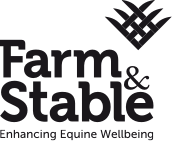

 Forgotten your password?
Forgotten your password?  Free Delivery on all orders over £95+VAT
Free Delivery on all orders over £95+VAT

